
March 11: Activists announce civil disobedience
The main protest organizer in Sudan, SPA, has called a civil disobedience slated for Wednesday March 13. It is the second time such a measure is being implemented.
“SPA and allies have called for a one-day civil disobedience on the 13th of March as the #SudanUprising gathers momentum in its 12th week,” they wrote in a Twitter post.
The first such was last week on March 5 when a nationwide strike was called and according to SPA, resoundingly adhered to across the country.
These measures are still pushed through despite a state of emergency. Security forces continue to violently crackdown on the people amid arrests and jailing of protesters.
Some actions slated under the civil disobedience include the following:
- Refraining from working in government offices and institutions.
- Refraining from paying statutory dues such as taxes and utility bills.
- Working to achieve a shutdown of transport routes – road, port, railways.
- Refraining from dealing with governmental interests and non-cooperation government agents.
- Boycott goods and services produced or provided by productive or service enterprises wholly or partially owned by the state.
Protests meanwhile continue in parts of the country. SPA shared footage of students in a university voicing their support for calls on President Al-Bashir to quit.
March 9: Activists execute succesful cleanup campaign
Pressure group SPA called for a cleanup campaign today in most parts of the country. Reports indicate that the call was well received and executed.
“#SudanUprising nonviolent resistance continues. Wide response to SPA and allies call for a clean-up campaign. People across #Sudan organized and participated in the campaign,” the group said in a Twitter post.
It was accompanied by a collage of people engaging in the cleanup. SPA has more often called for protests since December 2018.
Significantly this week, March 5, they called for a nationwide sit-down strike which they said was a resounding success. On the 7th, they called for protests in tribute to women.
That was also heeded despite the heavy security crackdown that followed. Detained women went on hunger strike on Friday, March 8 which coincided with International Women’s Day.
Meanwhile Sunday, March 10, has been officially declared as a protest day by the group in posts on its social media handles – Facebook and Twitter.
March 8: Detained women protesters on hunger strike, rallies continue
“Women detained during #SudanUprising go on hunger strike today, coinciding with #InternationalWomensDay, in defiance and protest against arbitrary detention,” this is a post on Twitter by the Sudanese Professional Association, SPA.
March 7, 24-hours to 2019 International Women’s Day was a day called by the SPA as a protest day in tribute to women. People defied security to protest against the government.
It turns out that some of the women were detained in the process. SPA says these women have been beaten and also denied health care.
Videos shared by a main opposition party showed female student protesters who had been teargassed being assisted after they were dispersed by the security forces.
Meanwhile, protests continued in parts of the capital, Khartoum, most of them started off after Friday prayers. Friday protests have been a sort of “tradition” since the protests
March 7: Court orders release of jailed activists
An emergency court meanwhile ordered the release of eight persons who had been jailed earlier this week. The eight were asked to be released and to pay fines for breaching the law.
Sudan is currently under a state of emergency with military personnel in charge of all provinces around the country. The measure was imposed to quell protests but have so far failed.
March 7: March 7 women’s rally underway
March 7 protests called by the Sudanese Professional Association, SPA, took place across the country according to reports from an online media group, Sudanese blogs.
Sudanese blogs reported that a rally in the capital Khartoum took place amid chanting of anti -government slogans and calls for President Omar Al-Bashir to quit.
The information was corroborated by social media content that showed university students protesting. The Sudanese Congress Party, SCP, has also been sharing videos and photos from the protests.
Some of the material shows students who were teargassed by security forces whiles a number of students were also reportedly arrested in the capital, Khartoum.
March 6: After March 5 strike, SPA calls March 7 women’s rally
The Sudanese Professional Association, SPA, have announced the latest protest action it says is in honour of women for their participation in the ongoing ‘uprising.’
The March 7 rallies are a ‘tribute to the women movements’ and are billed to happen at a number of rallying points across the country.
March 6: Professionals Association says March 5 strike successful
The Sudanese Professionals Association, SPA, which has spearheaded anti-government protests in the country says the March 5 nationwide strike had been a success.
The group posted an update today from the Network of Journalists who participated in the strike stressing that the fight against the regime continued unabated.
The strike saw a complete social shutdown across much of the country. Photos shared on social media showed that offices and markets had largely been abandoned in observance of the strike.
March 5: Govt lowers customs exchange rate
Sudan has lowered its customs exchange rate to 15 Sudanese pounds to the dollar, from a previous rate of 18, a document seen by Reuters on Tuesday showed.
The cabinet also decided to discount 75 percent of storage fees for cargoes and containers stuck in Sudanese ports over the period of Feb. 1-25, according to the document which is dated Feb. 26.
Sudanese businessmen had repeatedly called on the government to lower the rate to help them purchase dollars as the country faces its crippling shortage of foreign currency.
March 5: SPA calls nationwide strike
The Sudanese Professionals Association, SPA, the main group behind anti-government protests in the country has called for a general strike across the country today, March 5.
The body announced the measure as the latest leg of activities meant to pile pressure on the embattled president Omar Al-Bashir and his government.
SPA has since December 2018 used social media platforms – Twitter and Facebook – to rally thousands for protests that started with hike in bread prices and shortage of fuel.
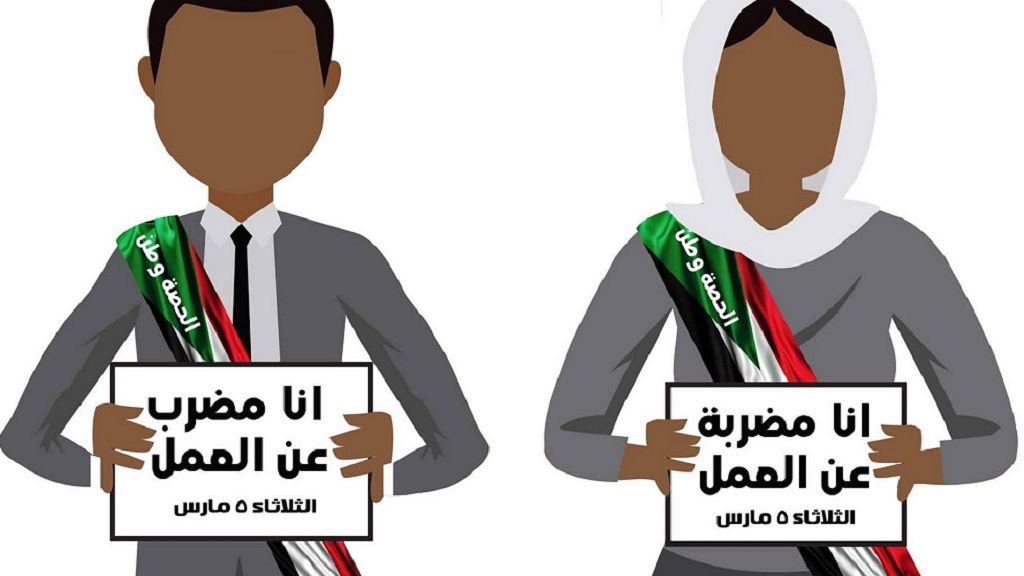
The protesters have since switched gear to making demands for the 30-year-reigning leader to quit and allow for a political transition.
Bashir has stepped down as head of the ruling party but declared a state of emergency that dissolved government and put military generals in charge of all provinces in February.
March 2: Opposition chief tasks Bashir to quit
Sudan’s main opposition party leader Sadiq al-Mahdi on Saturday called on President Omar al-Bashir to step down and sit with the opposition to agree on details of a transitional process to end the nation’s crisis, a statement from his party said.
“You can achieve a safe exit for the country which will be appreciated by the Sudanese people and history and will transform the deep polarization into national unity and international isolation into international cooperation,” the statement said.
The call comes after a week of successive measures aimed at combating an unprecedented wave of protests threatening Bashir’s three-decade rule, including declaring a nationwide state of emergency and sacking the governors of Sudan’s 18 states and replacing them with military and security officials.
The statement also called on Bashir to end the state of emergency, end torture and release all political prisoners.
Protests in Sudan, initially over high bread prices, have taken place nearly every day since Dec. 19 and developed into the most sustained challenge that Bashir has faced.
March 1: EU calls for truce in Sudan crisis
The European Union has reacted to developments in Sudan calling for the regime to do all it takes to arrest excesses that are likely to spiral from the recently declared state of emergency.
In a statement issued on February 28, the EU’s High Representative said they were monitoring the situation in Sudan. The statement called on government to release persons detained for political reasons.
“The EU expects the Sudanese government to release all journalists, members of the opposition, human rights defenders and other protesters in detention.
“Some of those with whom the dialogue is set to take place have been arbitrarily detained for over two months now,” the statement read in part.
The Sudanese Professionals Association, SPA, which is behind the protests wrote in an update on its Twitter page that five people had been killed on Thursday and one casualty as at today March 1.
March is the fourth month of continuous protests in the country. Today marks a week since the state of emergency was declared and government dissolved and reconstituted.
“Regime’ forces continue to directly fire teargas canisters at peaceful protesters from close proximity.
“Five protesters were injured during #SudanUprising rallies, on 28 Feb, and another one today. Many were hospitalized suffering teargas suffocation,” SPA said.
Declaration by the High Representative on behalf of the EU on the situation in Sudan:
The EU is closely following the situation in Sudan. Measures being adopted under the newly declared state of emergency, the increased role of the military in governing the country, further curtail fundamental freedoms and undermine the recent offer of a new political dialogue.
They create a permissive climate for the security services to act with impunity against peaceful protesters. The latest attacks against unarmed students in the University of Medical Sciences and Technology and against peaceful protesters in Omdurman, are deeply disturbing.
Genuine political dialogue requires an environment in which the Sudanese people can exercise their legitimate right to express their views. This will be essential to create the national consensus needed to find sustainable responses to Sudan’s deep political and economic crisis.
The EU expects the Sudanese government to release all journalists, members of the opposition, human rights defenders and other protesters in detention.
Some of those with whom the dialogue is set to take place have been arbitrarily detained for over two months now. An independent investigation into the deaths and abuses should be undertaken with those responsible held to account.
The respect for these fundamental principles are at the core of the EU’s phased engagement with the government of Sudan. We will continue to monitor the situation and review the impact of the Government of Sudan’s actions on its relations with the European Union.
Feb 28: Security forces struggling to contain defiant protesters
In the Sudanese capital, Khartoum, other parts of the country, anti-government protests continue to roll on even as of today. The protests are in blanket defiance of a nationwide ban imposed by government.
The country is currently under a state of emergency imposed specifically to quell the protests which are calling for an end to the three-decades rule of President Omar Al-Bashir.
Sudanese Professionals Association, the main bloc behind the protests shared a footage of demonstrations on Zalat street in Khartoum via Facebook.
Security deployed around the country are reported to have fired tear gas to disperse the protesters. Aside the association, opposition parties and other civil society groups have given backing to the mass action.
Until days ago, social media was cut by the authorities who have routinely blamed it for helping gather protesters but also share gruesome crackdowns by the security forces.
Feb 27: Bashir makes more personnel changes
Sudan’s president Omar al-Bashir on Tuesday reshuffled senior military staff on Tuesday, a day after announcing sweeping new emergency measures to deal with ongoing protests.
Several members of Sudan’s eight-strong military staff council switched positions and General Essam al-Din Mubarak, the former deputy head of the council, was given a new position as minister of state in the defence ministry.
“These are normal, routine changes that happen from time to time,” the military spokesman said.
Last week, Bashir announced a nationwide state of emergency and dissolved government.
He has since made the following changes;
- Appointed Mohamed Tahir Eila, ex- Jazeera governor, as the new prime minister.
- Sacked long time ally Bakri Hassan Saleh from position of vice president.
- Appointed defence Minister General Awad Ibnouf as the new first vice president.
- Appointed Mustafa Youssef as the new finance minister.
- Replaced all state governors with military officials.
Protesters have staged almost daily demonstrations since December, demanding that Bashir, who came to power in a 1989 military coup, step down.
The protests were initially inspired by high prices for bread but have turned into a sustained campaign against Bashir and his government.
Western powers criticise Bashir
Western powers including the United States, Britain and France condemned the latests measures by the government to clamp down on protestsers.
US Acting Ambassador to the United Nations, Jonathan Cohen urged Khartoum to “respect the rights of all individuals in Sudan” and “bring an immediate end to the violent repression of peaceful protests.”
Feb 25: Bashir bans rallies
As Bashir desperately seeks to end protests that have rocked Sudan for over three months now, the embattled president on Monday banned unauthorised rallies.
This follows the declaration of a state of emergency last week on Friday.
Bashir also gave the country’s security forces sweeping powers to to raid buildings where “suspicious activities were being carried out” and also search people, the presidency said.
Other measures include:
- Blocking roads and stopping traffic was banned
- Publishing news “that hurts the citizens or the constitutional system” on any platform, including social media, was also outlawed
- A new court and a special prosecutor were created to investigate violations of the measures, with offenders facing up to 10 years in prison
Explainer: Managing the economic crisis
Deadly protests began on December 19 after the government tripled the price of bread and quickly evolved into demonstrations against Bashir’s rule.
In the face of public anger over Sudan’s economic woes, Bashir on Monday announced measures to tackle the foreign currency shortage.
The presidency said no more than $3,000 would be allowed to be carried by any individual travelling outside the country.
Bashir also ordered that buying and selling of foreign currency be done only through official channels.
Over the past two years, the foreign exchange market has seen high volatility, forcing the country’s central bank to devalue the local pound twice last year.
Feb 24: New premier sworn in
Following the dissolution of government on Friday, in addition to declaration of state of emergency, president Nashir appointed Mohamed Tahir Eila as the new prime minister.
Eila , who is the former governor of the agricultural state of Jazeera was sworn in on Sunday, at a ceremony, according to an AFP photographer.
“Today, a new chapter begins in Sudan’s history,” Bashir, dressed in a military uniform, said at the ceremony.
Defence Minister General Awad Ibnouf was sworn in as the first vice president after his predecessor Bakri Hassan Saleh was sacked by Bashir.
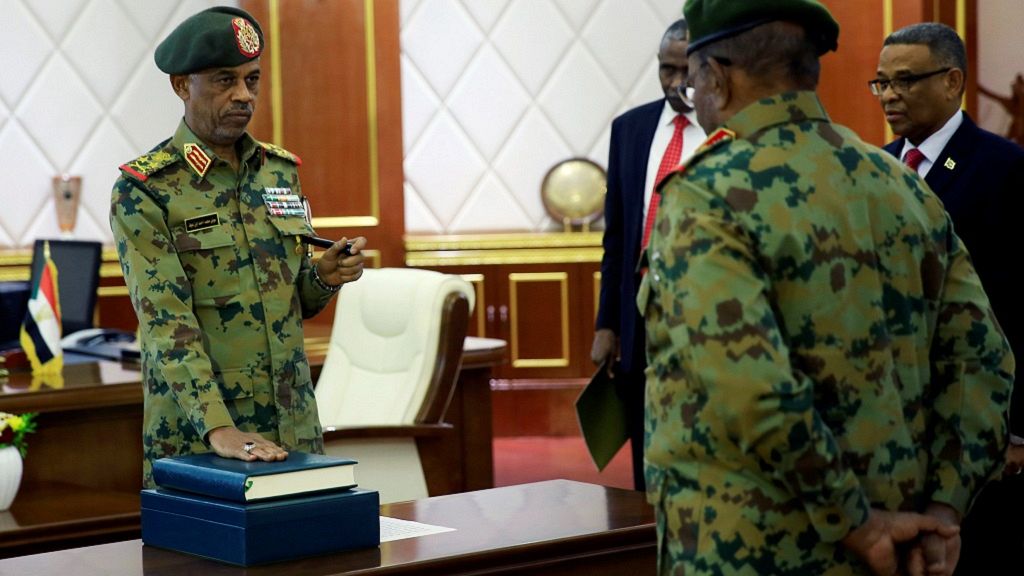
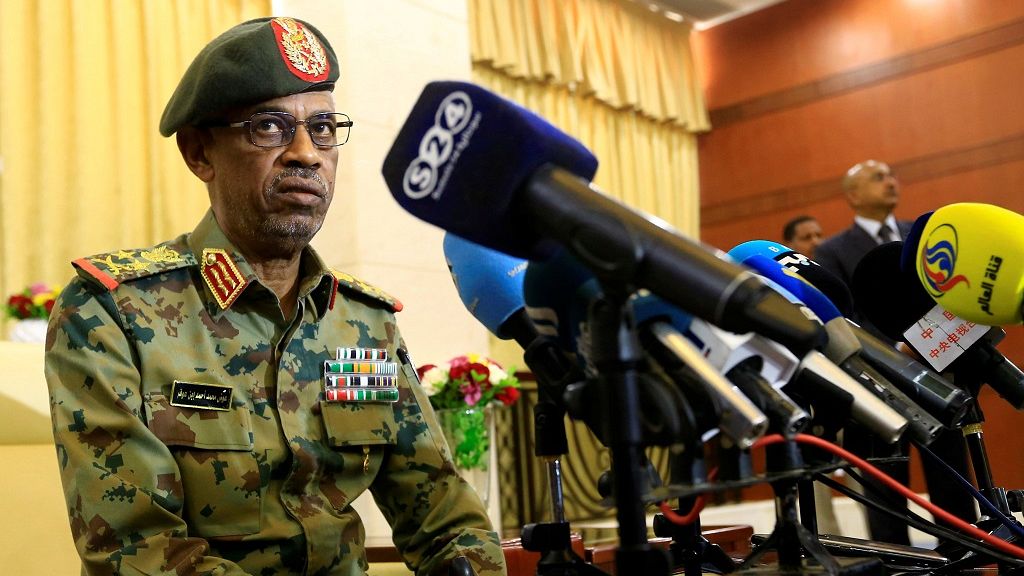
Bashir also swore in 16 army officers and two officers from the National Intelligence and Security Service dressed in military uniforms as new governors for the country’s 18 provinces.
“This chapter needs special people like you to lead… in order to guarantee security and stability in the country.”
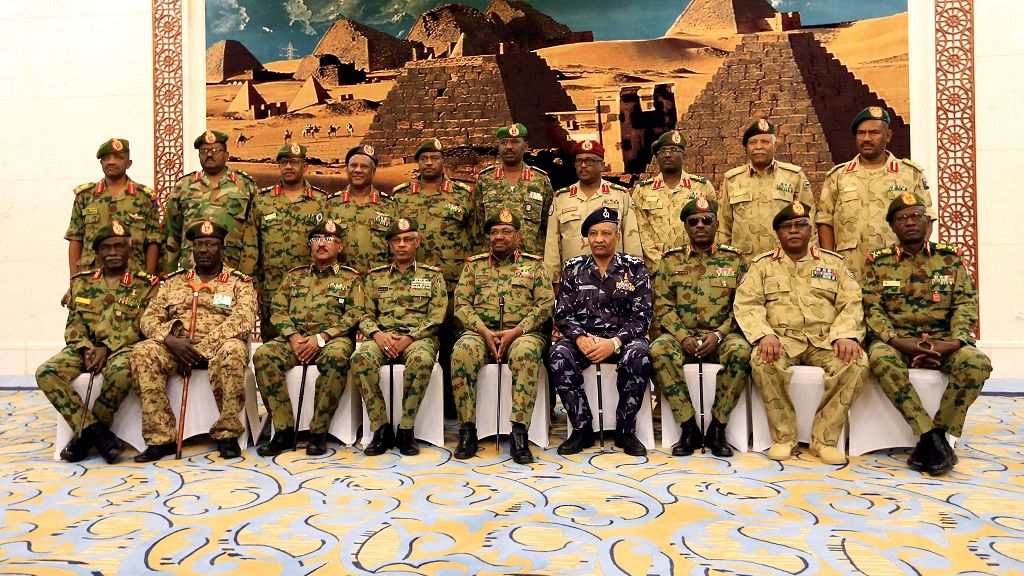
Bashir is expected to announce an entire new cabinet as he pushes on with sweeping top level changes in the face of nationwide protests that have rocked his rule.
February 24, 2019: Protesters defy state of emergency
Meanwhile, protesters continued to defy the state of emergency, holding demonstrations in Omdurman city, and the Khartoum districts of Burri and Shambat.
“We want to give the president a message that the state of emergency will not deter us,” said Sawsan Bashir who participated in the Omdurman rally.
“Our aim is to overthrow this regime and we will do it.”
Riot police swiftly confronted protesters in Omdurman and Burri with tear gas, witnesses said.
Protest organisers have vowed to continue with daily rallies, accusing Bashir and his officials of economic mismanagement that has led to soaring food prices and shortage of foreign currency.
February 23, 2019: President names defense minister as first veep
Sudan’s Defence Minister Awad Mohamed Ahmed Ibn Auf was appointed first vice president and will remain the defence minister, the Sudanese presidency said on Saturday.
President Omar al-Bashir declared a one-year nationwide state of emergency on Friday and set up a caretaker administration but retained his defence, foreign and justice ministers.
Protesters frustrated with economic hardship have demonstrated for more than two months calling for an end to Bashir’s 30-year-old rule.
Bashir also replaced on Friday the governors of every Sudanese state with military officials.
Ibn Auf, who previously served as the head of military intelligence, earlier this month became the second of several top officials to strike a conciliatory tone towards the protests, saying that young people caught up in the recent turmoil had “reasonable ambition”.
February 22, 2019: President declares 12-month state of emergency
Sudanese President Omar Al-Bashir has declared a 12-month state of emergency across the country. The declaration was made in an address to the nation at 8pm local time on Friday (February 22).
The move is aimed at quelling spreading anti-government protests calling for him to leave office.
Meanwhile, protesters continued their rallies in the capital Khartoum after the close of the Friday congregational prayers, Jum’ah.
Bashir has stressed that he will only leave office if polls are held but the relentless protesters have also vowed to continue till he leaves.
Security agencies have had a hard time controlling some of the protests. Routine reports of tear gas and discharge of live bullets have led to deaths and injuries amid widespread arrest of political opponents and journalists.
February 21, 2019: Telecom giants undertake sit-ins
Reports indicate that employees of MTN and Zain have staged sit-in protests at their offices in the country.
The action is allied with ongoing protests that have rocked the government with calls for president Al-Bashir to quit after three decades in charge of the country.
MTN is one of three telecom outfits operating in the country. Government has since December 2018 ordered a restriction on access to especially social media platforms.
But it continues to be one of the main sources of information on the anti-government action. Facebook and Twitter have been crucial in spreading information about ongoings across the country.
February 19, 2019: Students
Varsity students in Sudan were shown protesting against the continued stay in office of President Omar Al-Bashir. They join a growing public call for the three-decades old leader to go.
Protests have led to the closure of a number of universities across the country as government security apparatus tries to get a grip on the nationwide action.
Despite being called by a Sudanese Professional Association, the country’s main opposition and other rights groups locally have joined in encouraging citizens to keep up the protests.
Journalists – local and international, have been caught in the middle of the protests. Foreign reporters have been deported or ordered out over their coverage whiles local journalists have been arrested and allegedly tortured.
Rolls of daily and weekly newspapers have also been confiscated. A number of varsity professors in the capital Khartoum were recently arrested for attempting to stage a protest.
The government has routinely come out to report of deaths resulting from clashes. In the recent past, a fruit seller died of tear gas inhalation whiles a police was also stoned to death.
Human rights groups have disputed official government figures of deaths, putting the figure at above 40 – twice as much as the government tally.
February 17, 2019: Fruit seller dies over tear gas inhalation
A Sudanese fruit seller died Sunday in a hospital in Khartoum after inhaling tear gas fired by riot police during protests, according to his relatives and a committee of doctors linked to the anti-government protest movement.
“He was taken to the hospital but the doctors could not save him, he died from tear gas inhalation,” said a doctor who requested anonymity for security reasons.
A crowd of protesters gathered in Khartoum in the Bahari district (north) chanting “Freedom, Peace and Justice”, the main slogan of the protest, but soon faced riot police who fired tear gas, witnesses have reported.
February 15, 2019: Police pelted to death by protesters
A Sudanese policeman has died from his wounds after protesters threw stones at a police vehicle passing close to demonstrations in the capital Khartoum, a police spokesman said on Friday.
The vehicle was passing the area by chance late on Thursday, the spokesman said, adding that a number of suspects had been arrested.
The case brings the official death toll during protests that have spread since Dec. 19 across Sudan to 32, including three security personnel. An opposition-linked doctors’ syndicate said last week that 57 people had been killed in the protests.
“The vehicle was pelted with stones, and they were police returning from training and had no link to the dispersal of the unrest,” said police spokesman Hashem Ali.
Security forces dispersed protests close to the presidential palace in Khartoum on Thursday, rounding up several dozen of them and driving them away in pick up trucks, witnesses said.
On Friday police fired teargas to disperse hundreds of people who protested after leaving a mosque in Omdurman, across the Nile from central Khartoum, witnesses said.
REUTERS
February 14, 2019: Zero retreat till Bashir is history, arrests in Khartoum
Organizers of anti-government demonstrations in Sudan have reiterated their determination to continue mobilizing people until they overthrow the regime, excluding any dialogue with Sudanese President Omar al-Bashir.
Driven by a deep economic crisis, Sudan has been shaken since December 19 by almost daily demonstrations triggered by the government’s decision to triple the price of bread and other essential commodities.
“The opposition forces are united behind the demands of the people. They are working in harmony to overthrow the regime, and to continue demonstrations or sit-ins,” Sara Najdullah, Secretary General,
Association of Sudanese Professionals said.
Security forces fired teargas to disperse hundreds of protesters close to the Sudan’s presidential palace on Thursday, before plainclothes officers armed with plastic piping rounded up around 30 people, witnesses said.
Police then chased activists through side streets as smaller rallies broke out across downtown Khartoum.
Demonstrators chanted “Peaceful, peaceful against the thieves” and “Down, that’s it!” – their central demand for President Omar al-Bashir to step down.
The detained protesters, most of them young men and women, were driven away in pickup trucks, witnesses said. A police spokesman could not be reached for comment.
Union members, students, opposition activists and others, frustrated with economic hardships, have held near daily protests since Dec. 19, in the most sustained challenge to Bashir’s three decades in power.
The president and his ruling National Congress Party have shown no sign of bowing to those demands and have blamed the unrest on unnamed foreign powers. He and senior officials have used more conciliatory language in recent weeks, promising to release detained demonstrators.
But activists say hundreds remain in detention. An opposition-linked doctors’ syndicate said last week that 57 people have been killed in the protests. The government puts the death toll at 31, including two security personnel.
Security forces have used teargas, stun grenades and live ammunition to break up demonstrations.
The unrest has been fuelled by a deepening economic crisis marked by high inflation and shortages of bread, petrol and cash. The Sudanese pound fell to a record low on the black market on Thursday.
REUTERS
February 13, 2019: Sudan govt using hit-squad against protesters
The BBC is reporting about how the Sudanese government is employing special hit-squads to crackdown on anti-government protests that continue to spread across the country.
The BBC’s investigative wing, Africa Eye, pooled together videos shared by Sudanese caught in the protest whiles taking testimony of a victim of alleged state torture.
The BBC says it analyzed over 200 videos over the past weeks which showed low-level thugs under orders from the feared intelligence outfit, the NISS.
“Some of these protesters tell us about a secret and widely feared holding facility – The Fridge – where the cold is used as an instrument of torture,” the BBC report said.
President Omar Al-Bashir remains adamant about calls to step down. According to him only polls not protests will lead him out. Sudanese are expected to elect a president in 2020.
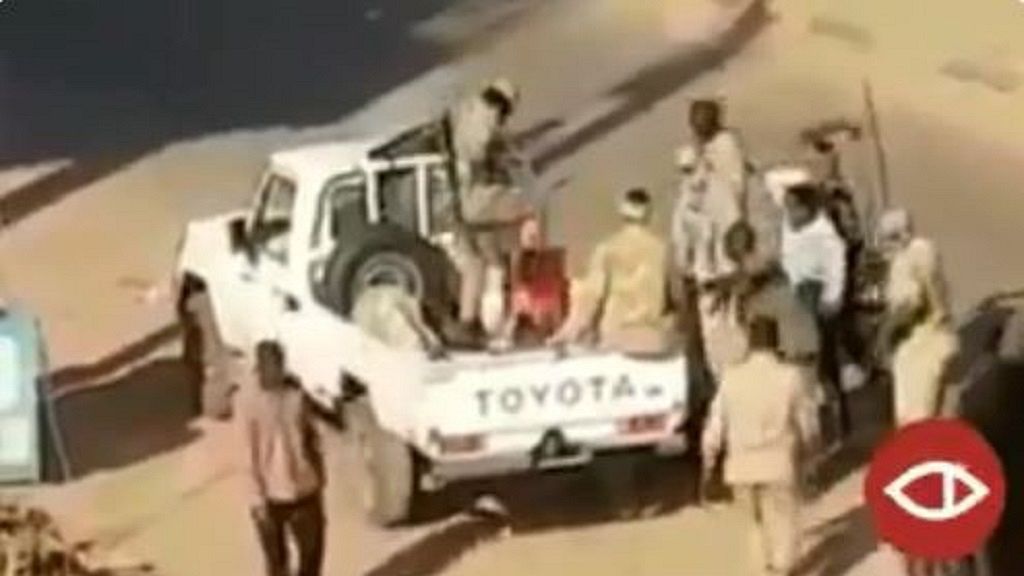
February 12, 2019: Professors arrested for planned protest
Security forces arrested 14 professors who were gathering to protest outside Khartoum University on Tuesday, witnesses said, as anti-government demonstrations neared the end of their eighth week.
Doctors also rallied outside state and private hospitals in Sudan’s capital and other cities against the rule of President Omar al-Bashir, witnesses added.
Union members, students, opposition activists and others, frustrated with economic hardships, have held near daily protests since Dec. 19, in the most sustained challenge to Bashir’s three decades in power.
Photos posted online on Tuesday showed people holding banners marked with “Freedom, justice and peace”, “No to torturing and killing protesters” and other slogans.
Rights groups say at least 45 people have been killed in the protests since they began on Dec. 19, while the government puts the death toll at 31.
Bashir has blamed the unrest on unnamed foreign powers and showed no signs of bowing to demands to quit. But he and some senior officials have adopted a more conciliatory tone in recent weeks and promised to free detained protesters.
Source: AfricaNews


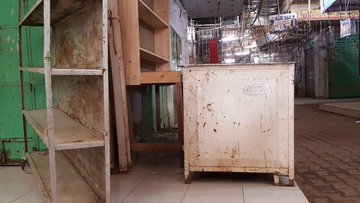
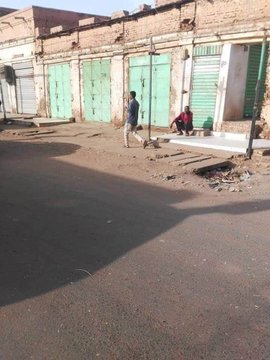
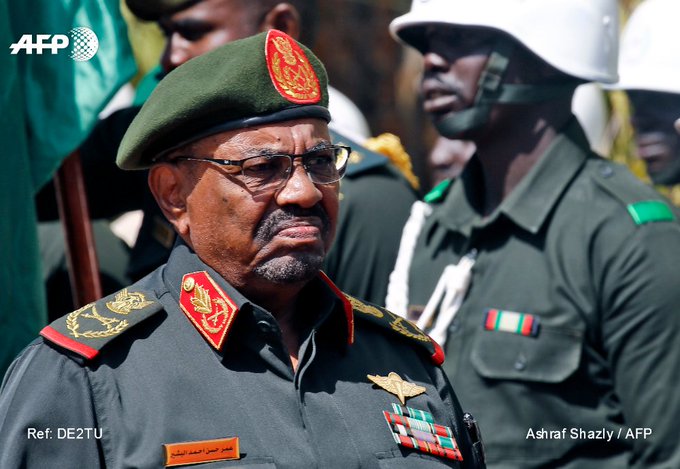

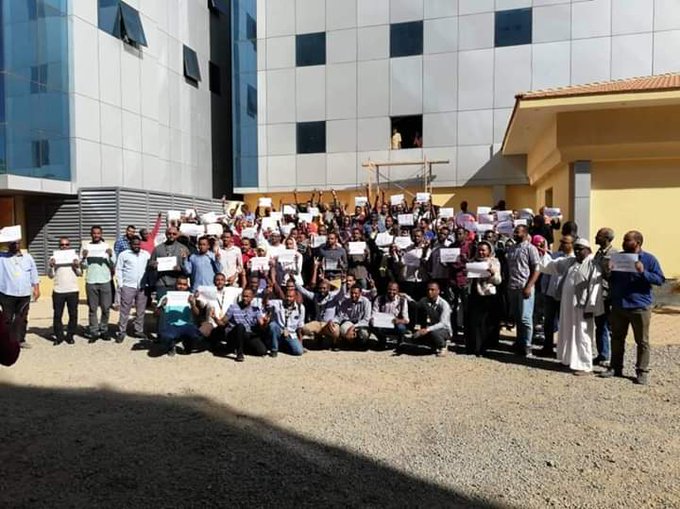
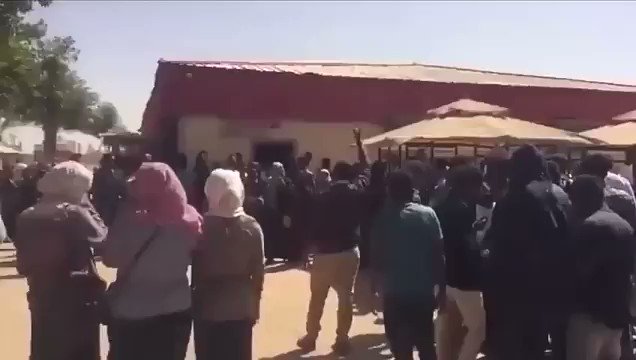

No comments:
Post a Comment
Add a Comment...